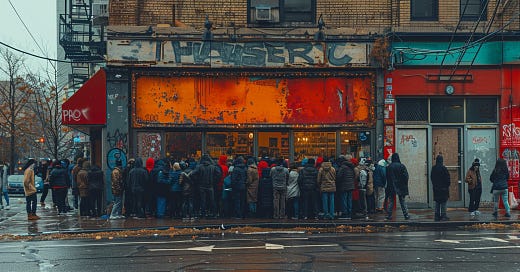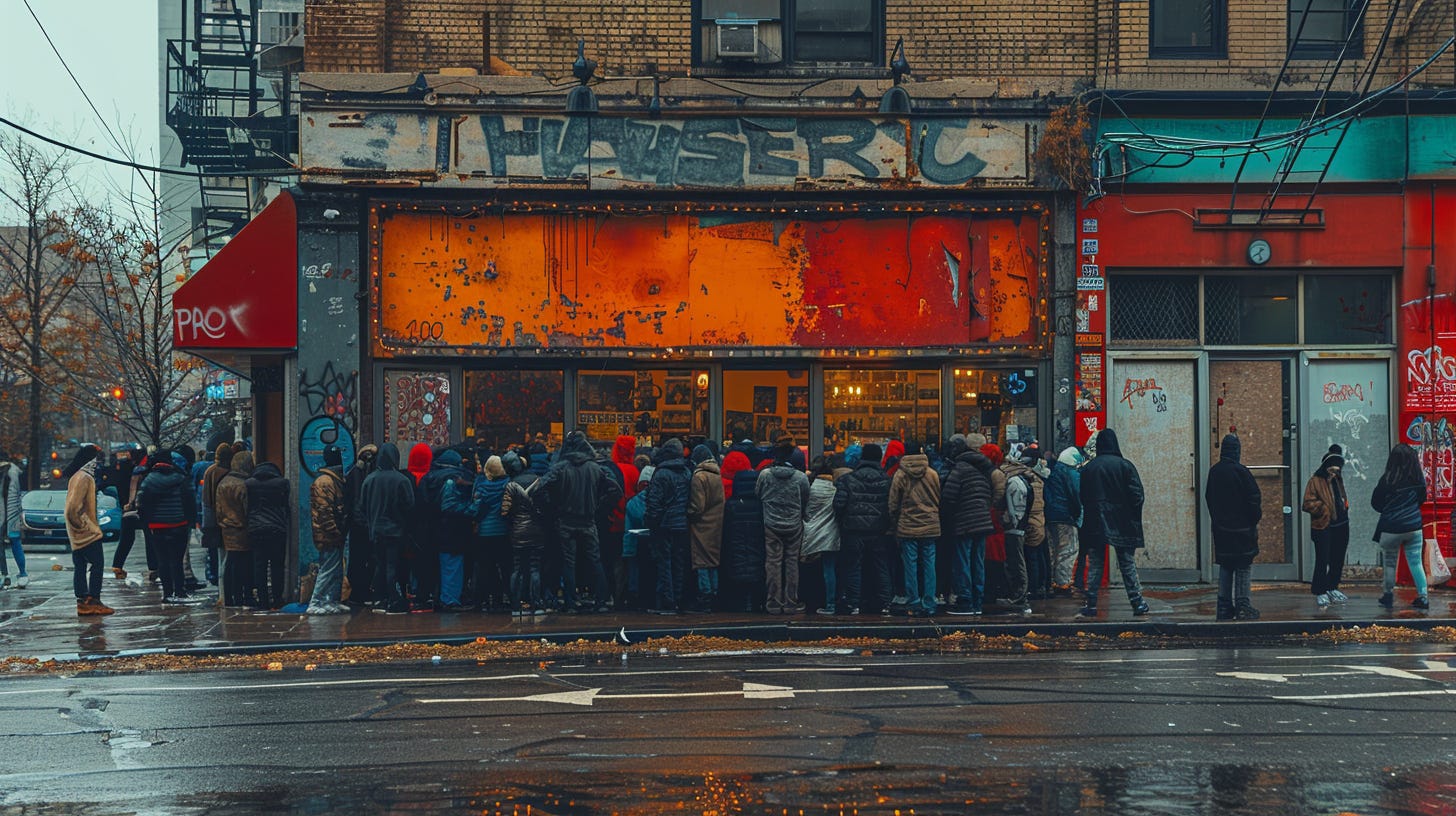Inflation is one of the central issues in the upcoming election, and Kamala Harris’ campaign is no exception in addressing it. Her solution? Ban price gouging. On the surface, it’s an easy sell—attack the big, bad corporations and promise lower prices. But anyone with even a passing understanding of economics knows this is political theater at its finest. If passing laws could fix all our problems, we’d be living in a utopia already.
The reality is that every action has consequences, and in this case, the cure could be worse than the disease.
Let’s break it down: What happens when you start regulating prices? What are the costs if it even works? And if it doesn’t—well, you’re still left with plenty of costs and unintended consequences. Before we dive into specifics, let’s take a step back and ask a fundamental question: Is it even moral to regulate prices?
Consumers, of course, want everything as cheap as possible. Businesses, on the other hand, want to sell their goods at the highest price they can. So, if greed is the sin politicians like to demonize, we’re all guilty. But in politics, where winning is about numbers, it’s easier to play to the majority. There are more consumers than producers, so blaming the “few”—businesses, corporations—has always been the go-to strategy to appease the masses. So, it’s not about morality. It’s simply political maneuvering.
People still ask, “Why can’t businesses just make less profit in tough times? Can’t they sell for cheaper?”
This question assumes that prices are arbitrary, set by corporate greed. But in reality, markets don’t work like that. Sure, lowering prices is a valid business strategy in a competitive market, but not everyone can do it. In fact, big corporations often do use price cuts to drive out competition, especially small businesses. Why? Because they benefit from economies of scale. The bigger they get, the lower their average cost, so they can afford to cut prices in ways that smaller players simply can’t.
Politicians love to pounce on this dynamic, accusing big corporations of pushing out small businesses and then jacking up prices once they’ve cornered the market. Sounds like a great story, right? The problem is, it's largely fiction. It’s the politics and bureaucracy that kill small businesses. But the political rhetoric gave birth to antitrust laws. Let’s be honest: these laws often miss the mark. The real problem isn’t monopolies; it’s bad economics.
Now, let’s talk about another favorite tool of government: taxes. When price controls don’t work—and they won’t—governments turn to taxation as a way to punish businesses for making “too much” money. From their perspective, it’s killing two birds without even having a stone to begin with. Politicians get to collect more revenue while scoring political points by claiming they’re fighting corporate greed. But does this actually make goods cheaper for consumers? Not at all. Big corporations can afford to hire brigades of accountants to navigate the tax code and minimize their liabilities. Meanwhile, small and medium-sized businesses—those who can’t afford the same resources—end up bearing the brunt of the tax burden. It’s the same story with personal taxation: the rich find ways to pay less, and the middle class ends up picking up the tab.
“But can’t we just regulate the big corporations and leave the small businesses alone?” Nice idea, but big businesses have lawyers for that. They can break themselves into smaller units, creating layers of complexity that evade simplistic regulatory solutions. Corporations are, after all, just legal fictions. However, breaking up companies isn’t free—it imposes costs that ripple through the entire market. And here’s where it gets even more complicated: two businesses in the same industry can look like they’re doing the same thing, but in reality, they operate under completely different business models.
Take McDonald’s, for example. To the casual observer, it’s a fast-food chain. But in truth, McDonald’s is more of a real estate and franchise business. Its franchisees are the ones running the individual stores—small business owners, technically. So how do you regulate that? Compare that with a local food truck selling hamburgers. Sure, they’re both selling burgers, but their economic realities couldn’t be more different. This raises a tough question: how do we even define an industry? Economists try to measure cross-elasticities and come up with definitions, but in the real world, things are a lot messier than what’s written in textbooks.
That brings us back to price controls. If the government regulates prices, you’re going to see two things happen—shortages and black markets. It’s inevitable. When prices are artificially kept low, producers lose the incentive to supply goods. So, we get shortages. At the same time, black markets thrive because people who can access the goods will sell them at much higher prices outside the regulated system. This is where real price gouging happens—driven by the very regulations meant to stop it. Consumer welfare doesn’t improve with price controls. In fact, it gets worse. Yet, politicians and the public cling to the idea that “greed” is the culprit, when in reality, it's the policy itself causing harm.
So, what’s the solution to high prices? Let’s think like economists. There are only two ways out: increase supply or reduce demand. Increasing supply is tough, and if it were easy, businesses would have already done it because there’s profit to be made. In a world of limited resources, supply doesn’t just expand magically. It expands when there’s enough profit incentive, but politicians loathe the idea that some people might profit from meeting demand.
Can governments suppress demand? Not really. There’s an entire industry—marketing—dedicated to discovering and fulfilling demand. The idea of artificially suppressing it is laughable, and “dismarketing” is yet to be a valid discipline. And even when governments try, say by banning certain goods or heavily taxing them, demand doesn’t just disappear. It shifts. Black markets rise. People find alternatives. Demand is an organic, constantly shifting force. The idea that government can simply clamp down on it is absurd.
Now, let’s circle back to the morality argument. Most people’s morality is fluid, determined by what they like or don’t like. They think profit-seeking is immoral because they’re on the consumer side of the equation. But if you’re running a business, especially in a volatile economy, making a profit is survival, not greed. True morality should be universal. If something is wrong, it’s wrong regardless of who’s doing it. Take theft, for example: no one wants to be robbed, so we all agree that stealing is immoral. But can governments stop theft entirely? Of course not.
This is why, as a classical liberal, I don’t put much faith in using powers and politics to solve fundamental problems. If we’ve learned anything over the millennia, it’s that government action often makes things worse.
Legislation isn’t going to solve the problem of inflation or high prices. If it were that easy, we wouldn’t need politicians. Price controls, punitive taxes, heavy-handed regulations, and even planned economies are blunt instruments that don’t address the root causes of the issue.
We should focus instead on making sure prices reflect reality, and letting the market do what it does: fulfilling demand. It’s not perfect, but it’s the best we have.















Share this post